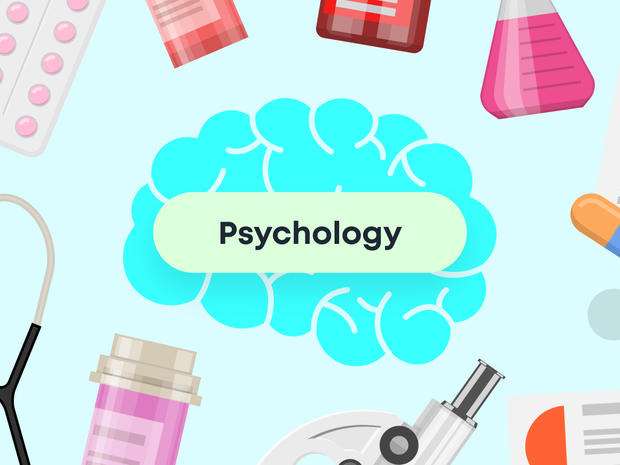Psychology is seen as a “soft” subject by many practitioners of medicine. In comparison to pharmacology, surgery, emergency medicine, and many other fields, it is relatively intangible. But that doesn’t mean it doesn’t matter. This article asks: why is psychology important for medicine?
Psychology, as a field of its own, is a real branch of medicine based on evidence and peer-reviewed research. It uses the scientific method like every other branch of medical science to learn about the various afflictions of our species and how to alleviate or heal them.
It’s also a field that has close linkages to the “harder” fields of medicine. The truth is, there is an intimate link between a person’s mental state and their physical health. In many cases, the two areas—the mind and the body—are inseparable for the purposes of diagnosis, treatment, and healing.
What Is The Role Of Psychology In Medicine?
Medicine isn’t just about treating the body, it’s about treating the whole human being. Psychology in medicine helps doctors understand how thoughts, emotions, and behaviors influence health outcomes. From stress management to treatment compliance, psychology bridges the gap between physical and mental well-being.
For medical students, mastering these connections is essential. Understanding the role of psychology in health and medicine prepares you to recognize how cognitive biases, cultural background, or socioeconomic stressors can affect both patient behavior and healthcare disparities.
Some classic psychological factors in patient care include:
- Classical Conditioning in Addiction: Environmental cues can trigger cravings in smokers or substance users, making cue-exposure therapy a valuable intervention.
- Operant Conditioning in Healthy Behaviors: Positive reinforcement (praise, support groups) helps patients adopt lasting health habits like diet, exercise, or medication adherence.
- Health Belief Model: Patients are more likely to follow a treatment if they believe they’re at risk, see the condition as serious, and trust the benefits outweigh the barriers.
- Cognitive Biases in Diagnosis: Anchoring or confirmation bias can cause diagnostic errors and awareness of these tendencies makes for safer, more accurate care.
- Stress and the Immune System: Chronic stress suppresses immunity, delays healing, and increases illness risk, proving mental health is inseparable from physical health.
Ultimately, psychology in medicine equips future physicians to:
- Communicate effectively and build patient trust.
- Anticipate and reduce barriers to treatment adherence.
- Apply evidence-based psychological strategies to improve overall patient outcomes.
Understanding psychology isn’t optional. It’s what allows you to connect the science of the mind with the science of the body and deliver care that is both compassionate and effective.
How Can You Practice Medicine Using A Body–Mind Approach?
Modern medicine increasingly recognizes that health is not just physical, and not just psychological: it is the dynamic interplay between body and mind. Practicing medicine with a body–mind approach means acknowledging how thoughts, emotions, stress, and behaviors can influence physical health outcomes, and weaving that understanding into clinical care.
This perspective isn’t about replacing traditional medical treatments, it’s about enhancing them. By integrating psychological insight with biomedical expertise, physicians can improve both diagnostic accuracy and patient adherence while fostering stronger patient relationships.
Some practical ways a body–mind approach shows up in medicine include:
- Addressing Stress and Immunity: Chronic stress elevates cortisol, weakens immunity, and slows healing. Helping patients manage stress can directly improve recovery.
- Behavioral Interventions: Tools from psychology, like motivational interviewing or operant conditioning, help patients adopt healthier habits and stick to treatment plans.
- Health Belief Model in Practice: Understanding a patient’s beliefs about risk, severity, and benefits helps you anticipate barriers and frame treatment in ways that resonate.
- Recognizing Cognitive Biases: Awareness of anchoring or confirmation bias in clinical reasoning can reduce diagnostic errors.
- Holistic Patient Communication: Attuning to a patient’s psychological state builds trust and increases the likelihood of positive outcomes.
Ultimately, practicing medicine through a body–mind lens allows healthcare providers to treat the whole person and not just their symptoms. This integrated approach leads to more compassionate, effective care and reflects the growing consensus in medicine that mental and physical health are inseparable.
The Future of Medicine Is Body–Mind
Psychology is not a “bonus” in medical care, it’s a fundamental part of how patients heal, cope, and thrive. Whether you’re treating a physical condition, supporting behavioral change, or navigating the complexities of patient communication, a body–mind approach ensures you are addressing the full human experience of health.
By integrating psychological insight with biomedical expertise, today’s healthcare providers can deliver more accurate diagnoses, improve adherence to treatment, and create deeper trust with their patients. The takeaway is simple: when you treat the mind and the body together, medicine becomes more effective, more humane, and more complete.
